MIHO's Healthy Smile Life
from webWD
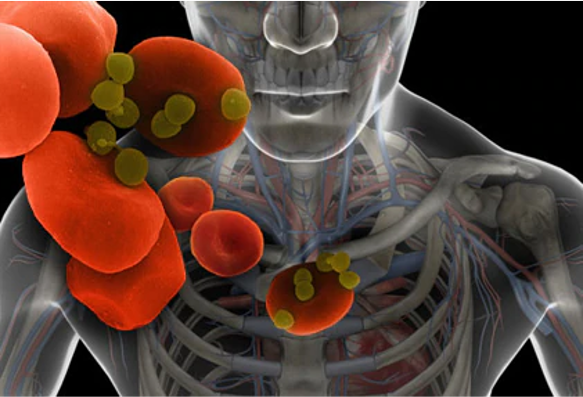
あなたのお口 あなたの健康
Your Mouth, Your Health
https://www.webmd.com/oral-health/ss/slideshow-teeth-gums
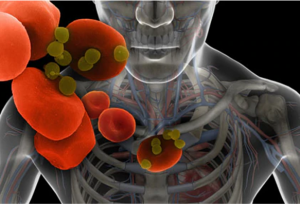
Can Mouth Bacteria Affect the Heart?
Some studies show that people with gum disease are more likely have heart disease than those with healthy gums. Researchers aren’t sure why that is; gum disease isn’t proven to cause other diseases. But it makes sense to take care of your mouth like you do the rest of your body.
url
口腔内細菌は心臓に影響を及ぼしますか?
歯周病の人は健康な人よりも心臓病になりやすいという研究結果があります。研究者たちは、それがなぜなのかはっきり分かっていません。 歯周病が他の病気を引き起こすことは証明されていません。しかし、体の他の部分と同じように、口のケアをすることは理にかなっています。
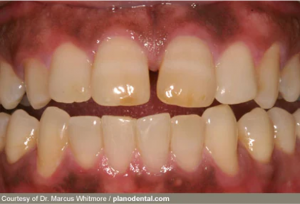
Gum Disease and Diabetes
Diabetes can reduce the body’s resistance to infection. Elevated blood sugars increase the risk of developing gum disease. What’s more, gum disease can make it harder to keep blood sugar levels in check. Protect your gums by keeping blood sugar levels as close to normal as possible. Brush after each meal and floss and rinse with an antiseptic mouthwash daily. See your dentist at least twice a year. Sometimes you dentists may want to see you more often.
url
歯周病と糖尿病
糖尿病は、感染に対する体の抵抗力を低下させる可能性があります。 血糖値が上昇すると、歯周病を発症するリスクが高まります。 さらに、歯周病は血糖値を抑制するのを困難にさせる可能性があります。 血糖値をできるだけ正常に近づけて歯周組織を保護しましょう。 歯磨きは毎食後行い、デンタルフロスと消毒剤のうがいを日常的に使用するようにしてください。 少なくとも年に2回は歯科医の診察を受けるようにしましょう。 歯科医はあなたにもっと頻繁に口腔内を見せてほしいと思っているでしょう。
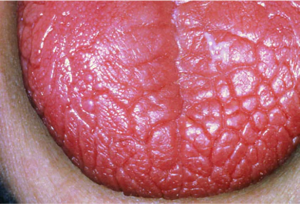
Dry Mouth and Tongue Cause Tooth Decay
The 4 million Americans who have Sjögren’s syndrome are more prone to have oral health problems, too. With Sjögren’s, the body’s immune system mistakenly attacks tear ducts and saliva glands, leading to chronically dry eyes and dry mouth (called xerostomia). Saliva helps protect teeth and gums from bacteria that cause cavities and gingivitis. So a perpetually dry mouth is more susceptible to tooth decay and gum disease.
url
ドライマウスと舌の渇きは虫歯の原因となる
シェーグレン症候群を患っている400万人のアメリカ人は、口腔の健康問題も抱えやすい傾向にあります。 シェーグレン症候群では、体の免疫系が狂い涙管や唾液腺を攻撃してしまい、慢性的なドライアイやドライマウスを引き起こします(口内乾燥症と呼ばれます)。 唾液は、虫歯や歯肉炎の原因となる細菌から歯や歯周組織を保護するのに役立ちます。 したがって、口が常に乾燥していると虫歯や歯周病にかかりやすくなります。
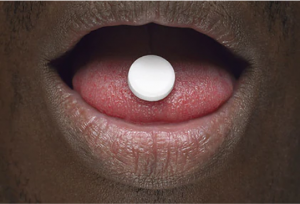
Medications That Cause Dry Mouth
Given that a chronically dry mouth raises risk of cavities and gum disease, you may want to check your medicine cabinet. Antihistamines, decongestants, painkillers, and antidepressants are among the drugs that can cause dry mouth. Talk to your doctor or dentist to find out if your medication regimen is affecting your oral health, and what you can do about it.
url
ドライマウスを引き起こす薬
慢性的に口が乾くのであれば虫歯や歯周病のリスクが高まるので、薬棚をチェックすることをお勧めします。 抗ヒスタミン剤、充血除去剤、鎮痛剤、抗うつ剤は、口腔乾燥症を引き起こす可能性のある薬です。 ご自身の投薬計画が口腔の健康に影響を及ぼしているかどうか、そして、それについて何ができるかを知るために、かかりつけの医者または歯科医に相談してください。
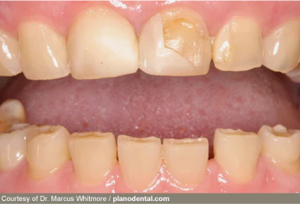
Stress and Teeth Grinding
If you are stressed, anxious, or depressed, you may be at higher risk for oral health problems. People under stress produce high levels of the hormone cortisol, which wreaks havoc on the gums and body. Stress also leads to poor oral care; more than 50% of people don’t brush or floss regularly when stressed. Other stress-related habits include smoking, drinking alcohol, and clenching and grinding teeth (called bruxism).
url
ストレスと歯ぎしり
ストレス、不安、または落ち込んでいる場合は、口腔の健康問題やリスクが高くなる可能性があります。 ストレスにさらされている人は、高レベルのコルチゾールというホルモンを生成し、それが歯茎と体に大混乱をもたらします。 ストレスはまた、不十分な口腔ケアにつながります。 50%以上の人が、ストレスを感じたときに定期的に歯ブラシやデンタルフロスをしないそうです。 その他のストレス関連の習慣には、喫煙、飲酒、食いしばりや歯ぎしり(ブラキシズムと呼ばれる)が含まれます。
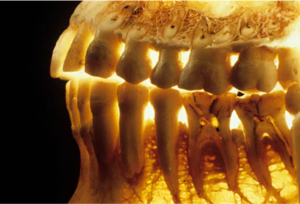
Osteoporosis and Tooth Loss
The brittle bone disease osteoporosis affects all the bones in your body — including your jaw bone — and can cause tooth loss. Bacteria from periodontitis, which is severe gum disease, can also break down the jaw bone. One kind of osteoporosis medication — bisphosphonates — may slightly increase the risk of a rare condition called osteonecrosis, which causes bone death of the jaw. This is usually only a concern after involved dental surgery. Tell your dentist if you take bisphosphonates.
url
骨粗そう症と歯の喪失
脆性骨疾患の骨粗鬆症は、顎の骨を含む全身の骨に影響を及ぼし、歯の喪失を引き起こす可能性があります。 重度の歯肉疾患である歯周炎の細菌も、顎の骨を破壊する可能性があります。 骨粗鬆症治療薬の一種であるビスフォスフォネートは、顎の骨死を引き起こす骨壊死と呼ばれるまれな状態のリスクさえもわずかに高める可能性があります。 これは通常、関与した歯科手術後にのみ懸念されます。 ビスフォスフォネートを服用している場合は、歯科医に必ず伝えてください。
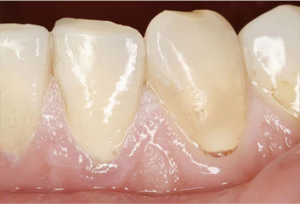
Pale Gums and Anemia
Your mouth may be sore and pale if you’re anemic, and your tongue can become swollen and smooth (glossitis). When you have anemia, your body doesn’t have enough red blood cells, or your red blood cells don’t contain enough hemoglobin. As a result, your body doesn’t get enough oxygen. There are different types of anemia, and treatment varies. Talk to your doctor to find out what type you have and how to treat it.
url
淡い色の歯茎と貧血
貧血の場合、口が痛くて青白いことがあり、舌が腫れて滑らかになることがあります(舌炎)。 貧血の場合、体に十分な赤血球がないか、赤血球に十分なヘモグロビンが含まれていません。 その結果、体に十分な酸素が行き渡らなくなります。 貧血にはさまざまな種類があり、治療法も異なります。 ご自分の貧血のタイプとそれを治療する方法を見つけるために、かかりつけ医にご相談ください。
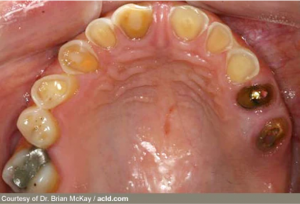
Eating Disorders Erode Tooth Enamel
A dentist may be the first to notice signs of an eating disorder such as bulimia. The stomach acid from repeated vomiting can severely erode tooth enamel. Purging can also trigger swelling in the mouth, throat, and salivary glands as well as bad breath. Anorexia, bulimia, and other eating disorders can also cause serious nutritional shortfalls that can affect the health of your teeth.
url
摂食障害は歯のエナメル質を侵食します
過食症などの摂食障害の兆候に最初に気付くのは歯科医かもしれません。 繰り返しの嘔吐による胃酸は、歯のエナメル質をひどく侵食する可能性があります。 嘔吐はまた、口臭だけでなく、口、喉、唾液腺の腫れを引き起こす可能性があります。 拒食症、過食症、およびその他の摂食障害も、歯の健康に影響を与える可能性のある深刻な栄養不足を引き起こす可能性があります。
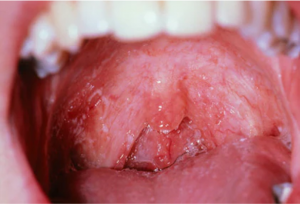
Thrush and HIV
People with HIV or AIDS may develop oral thrush, oral warts, fever blisters, canker sores, and hairy leukoplakia, which are white or gray patches on the tongue or the inside of the cheek. The body’s weakened immune system and its inability to stave off infections are to blame. People with HIV/AIDS may also experience dry mouth, which increases the risk of tooth decay and can make chewing, eating, swallowing, or talking difficult.
url
カンジダ症とHIV
HIV または AIDS に感染している人は、口腔カンジダ症、口腔いぼ、発熱性水疱、口内炎、および舌や頬の内側に白または灰色の斑点である毛様白班症を発症することがあります。 体内の弱った免疫システムと感染を食い止められないことが原因である可能性があります。 HIV / AIDSに感染している人は、ドライマウスを経験することもあります。これにより、虫歯のリスクが高まり、咀嚼、食事、嚥下、会話が困難になる可能性があります。

Treating Gum Disease May Help RA
People with rheumatoid arthritis (RA) are eight times more likely to have gum disease than people without this autoimmune disease. Inflammation may be the common denominator between the two. Making matters worse: people with RA can have trouble brushing and flossing because of damage to finger joints. The good news is that treating existing gum inflammation and infection can also reduce joint pain and inflammation.
url
歯周病の治療はRAに役立つ可能性があります
関節リウマチ(RA)のある人は、この自己免疫疾患のない人よりも歯周病になる可能性が8倍高くなります。 この2つには共通の性質がある可能性があります。 さらに悪いことに、関節リウマチの人は、指の関節に損傷があるため、歯磨きやデンタルフロスを行う際に問題が生じることがあります。 良いニュースは、既存の歯周組織の炎症と感染症を治療することで、関節の痛みと炎症を軽減することもできるということです。
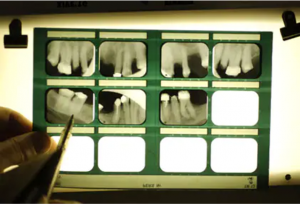
Tooth Loss and Kidney Disease
Adults without teeth may be more likely to have chronic kidney disease than those who still have teeth. Exactly how kidney disease and periodontal disease are linked is not 100% clear yet. But researchers suggest that chronic inflammation may be the common thread. So taking care of your teeth and gums may reduce your risk of developing chronic kidney problems.
url
歯の喪失と腎臓病
歯に欠損がある成人は、まだ歯のある成人に比べて慢性腎臓病になる可能性が高くなります。 腎臓病と歯周病がどのように関連しているかは、まだ100%明確ではありません。 しかし、研究者たちは慢性炎症が共通しているのではないかと示唆しています。 そのため、歯と歯茎をケアすることで、慢性腎臓病を発症するリスクを減らすことができます。

Gum Disease and Premature Birth
If you’re pregnant and have gum disease, you could be more likely to have a baby that is born too early and too small. Exactly how the two conditions are linked remains poorly understood. Underlying inflammation or infections may be to blame. Pregnancy and its related hormonal changes also appear to worsen gum disease. Talk to your obstetrician or dentist to find out how to protect yourself and your baby.
url
歯周病と早産
妊娠中に歯周病にかかっていると、早産で小さい赤ちゃんが生まれる可能性が高くなります。 2つの条件がどのように関連しているかは、正確にはよくわかっていません。 根本的な炎症や感染症が原因である可能性があります。 妊娠とそれに関連するホルモンの変化も歯周病を悪化させるようです。 あなた自身と赤ちゃんを保護する方法を見つけるためにご自身の産科医または歯科医に相談してください。
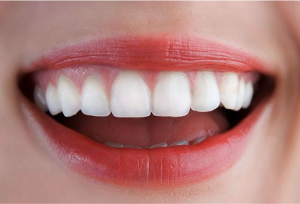
What Healthy Gums Look Like
Healthy gums should look pink and firm, not red and swollen. To keep gums healthy, practice good oral hygiene. Brush your teeth at least twice a day, floss at least once a day, rinse with an antiseptic mouthwash once or twice a day, see your dentist regularly, and avoid smoking or chewing tobacco.
url
健康な歯茎はどのように見えるか
健康な歯茎は、赤く腫れているのではなく、ピンク色で固く引き締まっている必要があります。 歯茎を健康に保つために、口腔衛生を適切な状態に保ちましょう。 少なくとも1日2回歯を磨き、少なくとも1日1回はデンタルフロスをし、1日1〜2回消毒剤のうがい薬で洗い流しましょう。そして、定期的に歯科医の診察を受け、喫煙や噛みタバコは避けるようにしましょう。

